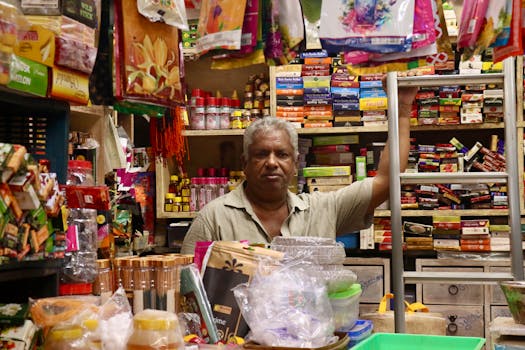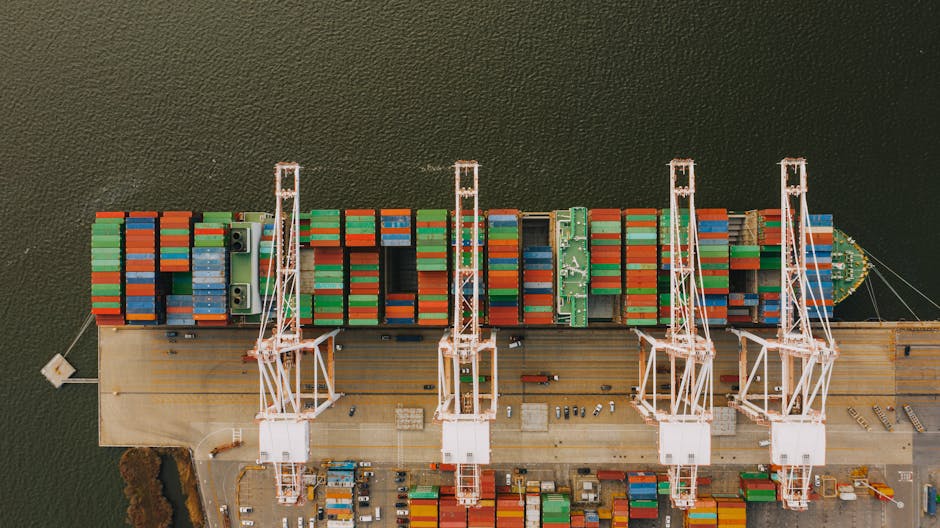Companies with the best and the worst technicals.
Lists of companies in NSE500 with the best and the worst technicals...
Lists of companies in NSE500 with the best and the worst technicals...
Lists of companies in NSE500 with the best and the worst fundamentals...
List of the latest important filings for NSE500....

This article explores the detrimental effects of terrorism on India's economy, highlighting...

The proactive measures taken by Indian airlines in response to the Pahalgam...

This article examines the stock market volatility and investor behavior in India...

In recent months, geopolitical tensions between India and Pakistan have escalated, leading to the suspension of trade activities between the two neighboring countries. This halt has far-reaching economic consequences that can be felt in both nations, impacting not only local economies but also the broader South Asian economic landscape.
India and Pakistan have a long history of trading relations, which have been characterized by fluctuations influenced by diplomatic relations. In 2017, the trade between India and Pakistan was valued at approximately $2.2 billion, with India primarily exporting cotton, machinery, and pharmaceuticals, while Pakistan exported textiles, leather goods, and sports equipment.
However, geopolitical tensions have consistently hampered the potential for stronger economic ties. In 2019, after the Pulwama terrorist attack, India revoked the Most Favored Nation status it had granted to Pakistan, leading to a significant decrease in trade.
In August 2023, the Indian government announced an embargo on all trade with Pakistan following escalating border tensions. This decision has come in the wake of military confrontations in Jammu and Kashmir, with both countries accusing each other of ceasefire violations. Pakistani officials swiftly condemned the embargo, explaining that it would exacerbate existing economic difficulties within their nation.
The halt in trade has now led to delays in supply chains across industries that rely on cross-border trade. Key sectors, such as textiles—Pakistan's largest export industry, contributing approximately $13 billion to its GDP—are witnessing an adverse impact.
The immediate ramifications for Pakistan are severe, primarily due to its reliance on India as a market for raw materials and intermediate goods. The Textile Association of Pakistan has indicated that the ban could result in job losses for over 200,000 workers engaged in textile production alone. Furthermore, disruptions in the supply of raw materials could raise costs, making it less competitive in international markets.
Additionally, agricultural products that are typically traded across the border, such as fruits and vegetables, are now facing wastage due to lack of access to the Indian market. For instance, Pakistan exports approximately $300 million worth of agricultural goods to India annually, a number that will dwindle if trade does not resume.
On the Indian side, while the immediate impact may seem less severe given its larger economy, the halt in trade with Pakistan does have economic implications. India's trade with Pakistan comprises a smaller portion of its overall exports; however, sectors like the pharmaceutical industry, which has been enjoying steady exports to Pakistan, are likely to see a downturn. The yearly pharmaceutical exports to Pakistan are around $500 million.
Moreover, Indian entrepreneurs and businesses often involve themselves in logistics and services catering to the supply chain across the border, which could come under significant stress. Regions in northern India that depend economically on cross-border trade are likely to experience stagnation, particularly in states like Punjab and Jammu.
Experts predict that the long-term economic consequences will be felt most acutely as both nations lose out on potential opportunities that could be harnessed through trade. South Asia’s potential for growth relies heavily on collaboration and mutual cooperation, which this trade embargo contradicts.
The Asian Development Bank has expressed concerns that prolonged tensions could drain resources required for development projects in both countries. With collective GDP growth rates in the region currently hovering around 6.5%, any loss in trade can significantly complicate economic recovery strategies moving forward.
International stakeholders are closely observing the current situation between India and Pakistan. Trade relationships in South Asia hold a significant impact on global supply chains, with many multinational corporations seeking stability in the region. The halting of trade may also affect negotiations between India and other trade partners, jeopardizing bilateral, regional, and multilateral trade agreements that involve either country.
The potential for increased trade disputes could also arise as both nations may turn to international forums to address grievances stemming from these tensions, further entrenching their positions.
The suspension of trade between India and Pakistan carries profound economic implications, entrenching existing difficulties and jeopardizing the potential for future cooperation. While immediate effects are being assessed, the long-term outcomes will significantly define the economic relations between two nations with historic ties.

This article delves into the significant outcomes of the recent GST Council...

This article delves into how digital technologies are transforming financial services in...